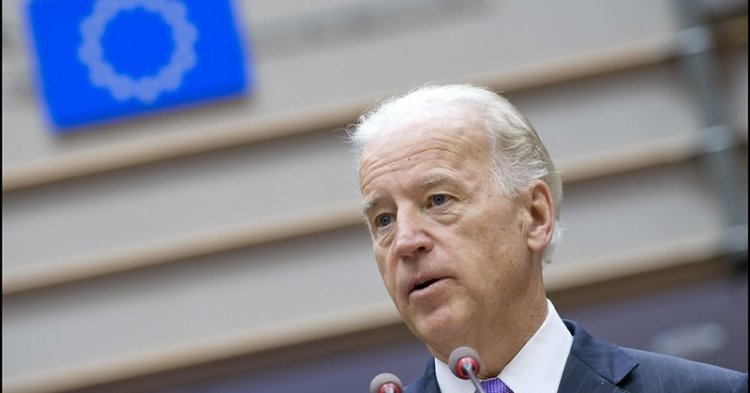Barely disguised relief
While many European leaders skimmed over the chaos that the Trump presidency has heaped upon transatlantic relations and the headaches this has meant for them, their relief at the news of a change of occupant in the White House and their hope for a more “normal” relationship was evident.
The statement from the President of the European Commission Ursula von der Leyen contained echoes of this: “This partnership [between Europe and the US] has underpinned the liberal rules-based order for decades and remains a pillar of stability, security and prosperity on both sides of the Atlantic.” You can read her statement in full here.
Similarly, President of the European Parliament David Sassoli tweeted that the US and the EU share common values and that he looks forward to them working together.
Many national leaders and ministers, including Germany’s Minister for Foreign Affairs Heiko Maas, evoked common challenges that will need to be faced – challenges which have been shelved or complicated by the Trump presidency.
Meanwhile, French President Emmanuel Macron offered a concise, optimistic message:
The Americans have chosen their President. Congratulations @JoeBiden and @KamalaHarris! We have a lot to do to overcome today’s challenges. Let's work together!
— Emmanuel Macron (@EmmanuelMacron) November 7, 2020
Equally, much of the press across the continent expressed relief and optimism while taking stock of the challenges ahead: you can skim Europe’s front pages in this piece by POLITICO.
A sentiment not shared
The relief is not universal, however. Hungary’s Viktor Orban had previously endorsed Donald Trump for a second term in office and expressed his confidence that Trump would once again be elected president. He only very belatedly – read reluctantly – recognised Biden’s victory.
In a similar vein, Slovenia’s Janez Janša, also an ally of Trump, cautioned that legal processes were still underway and results were not yet clear. This is particularly hypocritical for a Prime Minister who previously helped propagate Trump’s absurd, premature and incorrect assertion that he had won the election:
It’s pretty clear that American people have elected @realDonaldTrump @Mike_Pence for #4moreyears. More delays and facts denying from #MSM, bigger the final triumph for #POTUS. Congratulations @GOP for strong results across the #US @idualliance pic.twitter.com/vzSwt9TBeF
— Janez Janša (@JJansaSDS) November 4, 2020
These reactions highlight that Europe may find it difficult to present a united front in this new chapter of EU-US relations and show that admirers of Trump’s disregard for democracy are hardly limited to the fringes even on this side of the pond.
Mixed messaging
Over in the UK, while both Prime Minster Boris Johnson and Foreign Minister Dominic Raab issued congratulatory statements, it is unclear what the impact of the Biden victory will be for the looming subject of Brexit. Trump was seen as part and parcel of a new era of stronger Anglo-American relations by many Brexit-backing ministers and thus as an essential component of a successful future of the UK in a post-Brexit world.
His defeat therefore means the much-promoted fantasy of a quick UK-US trade deal seems a lot more a distant, as Biden has already shown himself to be far more attentive to the impact of Brexit on Ireland – and, indeed, to respecting the already-agreed Withdrawal Agreement which the British government has sought to override via the infamous Internal Market Bill which throws the promise of a borderless island of Ireland into fresh jeopardy.
During his election campaign, Biden had already condemned the Internal Market Bill, saying during his campaign that “any trade deal between the US and UK must be contingent upon respect for the agreement and preventing the return of a hard border”.
The Trump era is not over
Let’s not forget that Donald Trump has yet to concede the election and he still has two months as President of the United States. While the numerous lawsuits he has launched are widely considered baseless and doomed to fail, given there is no evidence of the voting fraud he has repeatedly signalled, he still has eight weeks of power that he may use for political ends. As The New Federalist’s Global Affairs Editor Christian Gibbons previously showed, there is no guarantee of a peaceful transition of power.
With the House and the Senate possibly both coming under Republican control over in the US, with many applauders of Trumpism still in positions of power on both sides of the Atlantic, and with many of the most dangerous ideals promoted by Trump far from extinguished, the return to respect for liberal democracy and a rules-based international order that many European leaders are clamouring for is far from guaranteed. But, for now, Europe’s leaders are right to cautiously welcome the collective turning of a new page.


Follow the comments: |
|
